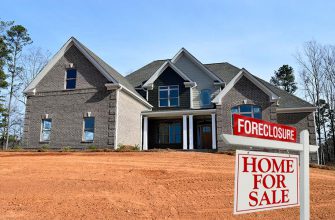If you’re a homeowner looking to make improvements to your home, you might be interested in learning about grants for home improvements. These grants, often offered by the government, can provide financial assistance to homeowners looking to make necessary repairs or enhancements to their property. In this section, we’ll share some vital tips to help you navigate the world of home improvement grants, including eligibility requirements, types of grants available, and tips for securing financial assistance for your home renovation projects.
Whether you’re a first-time homeowner or a seasoned property owner, it can be challenging to understand the different types of grants available for home improvements. Fortunately, there are several resources available to help you get started, and our guide will help break it all down for you. From government grants for home improvements to more specific funding options like home renovation grants, we’ll provide you with the information you need to make informed decisions and secure the funding you need to improve your home.
So, if you’re ready to get started on your home renovation journey, keep reading for some invaluable tips on grants for home improvements.
- Understanding Grants for Home Improvements
- Types of Grant Programs
- Applying for Home Improvement Grants
- Eligibility for Home Improvement Grants
- Grants for Low-Income Homeowners
- Other Eligibility Requirements
- Types of Home Improvement Grants
- Tips for Securing Home Improvement Grants
- Explore Alternative Financing Options
- Research Available Grant Programs
- Ensure Eligibility Requirements are Met
- Prepare a Strong Grant Application
- Consider Specific Grants for Seniors
- Grants for Energy-Efficient Home Improvements
- The Benefits of Energy-Efficient Upgrades
- Available Grant Programs
- Qualifying for Energy-Efficient Grants
- Applying for Home Improvement Grants
- Organization and Project Planning for Successful Home Improvement Grant Applications
- Expert Advice for Maximizing Government Grants for Home Improvement
- Success Stories of Homeowners Who’ve Benefited from Grants
- Conclusion
Understanding Grants for Home Improvements
Home improvement grants are financial assistance opportunities offered to homeowners by various organizations to support repair and renovation projects. These grants aim to promote safe and healthy living conditions, energy conservation, and affordability in home improvements.
Grant programs for home improvements vary in eligibility criteria, funding levels, and the scope of the renovations covered. Some grant programs may focus on specific types of repairs, such as roofing or plumbing, while others may support broader home improvement projects. Understanding the different types of grant programs available is essential for homeowners seeking financial assistance for their renovation needs.
Types of Grant Programs
| Grant Program | Eligibility Requirements | Funding Coverage |
|---|---|---|
| Government Grants for Home Improvements | Varies by program and agency | Up to $7,500 |
| Home Repair Grants | Low-income households, seniors, veterans, and disabled homeowners | Up to $15,000 |
| Energy-Efficient Home Improvement Grants | Varies by program and location | Up to $5,000 |
| Affordable Home Improvement Grants | Low-income households | Up to $10,000 |
It’s essential to research each grant program’s eligibility criteria, application process, and funding coverage to determine the best fit for your home improvement project.
Applying for Home Improvement Grants
Homeowners seeking financial assistance for their home improvement projects should ensure they meet all eligibility requirements and prepare a strong grant application. Some essential tips for securing home improvement grants include:
- Research all available grant programs and eligibility criteria.
- Prepare a comprehensive project plan, including estimated costs and timelines.
- Obtain all necessary documentation required for the grant application.
- Submit a clear and concise application with a compelling proposal.
- Follow up with grant program officials and be patient throughout the application process.
In conclusion, understanding the concept of home improvement grants and exploring the various grant programs available can be an excellent way for homeowners to secure financial assistance for their renovation needs. By carefully reviewing eligibility criteria, funding coverage, and the application process, homeowners can increase their chances of securing the necessary funding for their home improvement projects.
Eligibility for Home Improvement Grants
If you’re considering home improvement projects and are in need of financial assistance, applying for a home improvement grant can be an ideal solution. However, before applying, it’s crucial to understand the eligibility requirements set by different grant programs to increase your chances of approval.
Different grant programs have various criteria for eligibility; some programs are specifically designed for low-income homeowners, veterans, or individuals with disabilities, while others may have specific requirements for the type of renovation being carried out.
Grants for Low-Income Homeowners
If you’re a low-income homeowner, you may be eligible for grants to help you finance necessary home repairs or upgrades. The eligibility criteria for these grant programs typically focus on household income, with specific thresholds varying by program and location. For example, the Healthy Homes Production Grant Program from the US Department of Housing and Urban Development (HUD) prioritizes grant recipients with incomes at or below 80% of the area median income.
Other Eligibility Requirements
In addition to income requirements, different grant programs may have additional eligibility criteria that applicants must meet. For instance, the Single Family Housing Repair Loans & Grants program from the US Department of Agriculture (USDA) requires that the applicant be the homeowner and occupy the property, among other requirements.
Before applying for a grant program, it’s essential to review and understand the eligibility criteria and requirements to avoid wasting time and resources on an application that doesn’t meet the necessary qualifications.
| Grant Program | Eligibility Requirements |
|---|---|
| HUD Healthy Homes Production Grant Program | Household income at or below 80% of the area median income |
| USDA Single Family Housing Repair Loans & Grants | Applicant must be the homeowner and occupy the property |
| Veterans Affairs Home Improvement and Structural Alteration Grant | Veterans or servicemembers with specific service-connected disabilities |
Types of Home Improvement Grants
For homeowners, government grants for home improvement can be a huge relief in financing home renovation projects. Depending on your specific needs, different types of grants are available. Understanding the different grant options can ensure that you receive the funding you need for your home.
- Government grants for home improvement: These grants are provided by the government to help homeowners fund essential repairs, energy-efficient upgrades, and other home improvements. The amount awarded depends on the type of work needed and the applicant’s eligibility. In addition, there may be specific government grant programs available to aid homeowners in need of financial assistance.
- Home renovation funding: Certain grants may be aimed at funding specific types of renovations. For instance, some programs may offer funding for kitchen or bathroom remodels, while others may focus on structural repairs.
- Affordable home improvement grants: Grants aimed at promoting affordability in home improvement projects may be available to low-income homeowners, seniors, or veterans. These grants can provide the necessary financial assistance for home improvement projects that might otherwise be unaffordable.
By exploring the different types of home improvement grants available, homeowners can identify the best funding options to meet their unique needs. Whether you’re looking to improve energy efficiency or need essential repairs, government grants and other financing options can help turn your home improvement dreams into a reality.
Tips for Securing Home Improvement Grants
If you’re considering a home improvement project but need financial assistance, securing a grant can be an excellent option. Here are some tips and strategies to help increase your chances of obtaining a home improvement grant:
Explore Alternative Financing Options
While grants can provide significant financial assistance, they may not cover the entirety of your home improvement project. Consider exploring alternative financing options, such as personal loans or home equity lines of credit, to fill in any gaps in funding.
Research Available Grant Programs
Thoroughly research all available grant programs to find those that closely match your specific project needs. For instance, some grant programs offer financial assistance for specific types of renovations, such as energy-efficient upgrades or accessibility modifications for senior homeowners.
Ensure Eligibility Requirements are Met
Make sure you meet all eligibility requirements before submitting a grant application. Some grant programs have strict financial or demographic criteria that must be met, such as grants designed specifically for low-income homeowners or seniors, while others may require a specific type of renovation.
Prepare a Strong Grant Application
Preparing a comprehensive, detailed proposal is essential to securing a home improvement grant. Follow all instructions provided by the grant program and provide clear documentation to support your application.
Consider Specific Grants for Seniors
If you’re a senior homeowner, there are specific grant programs available to assist with financing home improvement projects. For example, the USDA offers grants for seniors to make accessibility upgrades to their homes, while the National Council on Aging has a home improvement program for seniors that can provide financial assistance for repairs and modifications.
By following these tips and strategies, you can increase your chances of securing a home improvement grant and funding your dream home renovation project.
Grants for Energy-Efficient Home Improvements
Upgrading your home to make it energy-efficient not only reduces your carbon footprint but can also lead to significant savings in the long run. However, the cost of these upgrades can be daunting. Fortunately, there are several grant programs available to help homeowners make energy-efficient improvements to their homes.
The Benefits of Energy-Efficient Upgrades
Energy-efficient upgrades can include anything from adding insulation to replacing windows and doors. These upgrades help to reduce energy consumption, increase comfort and indoor air quality, and decrease utility bills.
Available Grant Programs
There are several grant programs available for making energy-efficient upgrades to your home. One example is the Energy Efficiency and Conservation Block Grant (EECBG) program. This program provides grants to states, territories, local governments, and Indian tribes to help fund energy-efficient projects. Another example is the Residential Renewable Energy Tax Credit, which provides a tax credit of up to 26% of the cost of qualifying energy-efficient upgrades.
In addition to government and tax credit programs, some local utilities also offer financial incentives for energy-efficient upgrades. Check with your local utility company for more information on available options in your area.
Qualifying for Energy-Efficient Grants
Qualifying for energy-efficient grants requires meeting specific eligibility requirements. Typically, these requirements include income restrictions, specific types of energy-efficient improvements, and compliance with building codes and standards. Consult the specific grant program for more information on eligibility requirements.
| Grant Program | Eligibility Requirements |
|---|---|
| Energy Efficiency and Conservation Block Grant (EECBG) program | Local governments, states, territories, and Indian tribes |
| Residential Renewable Energy Tax Credit | Homeowners who install qualifying energy-efficient systems |
By taking advantage of energy-efficient home improvement grants, you can make significant upgrades to your home while reducing your environmental impact. Be sure to explore all of the available programs to determine which one is the best fit for your specific needs.
Applying for Home Improvement Grants
Securing a home repair grant can significantly ease the financial burden of major home improvements. However, the application process can be daunting, requiring extensive documentation and attention to detail. Here are some important steps to take when applying for home improvement grants:
- Research grant programs for home improvements that align with your eligibility criteria.
- Gather all necessary documentation, including proof of income, property ownership, and estimates for the cost of repairs.
- Prepare a detailed project plan to present to the grant provider.
- Ensure that your application is complete and all required information is clearly presented.
It is also important to highlight your eligibility for a home improvement grant in your application. Ensure that you meet all eligibility criteria, such as low-income status or age qualifications. If you are unsure of your eligibility, contact the grant program administrator or consult with a housing counselor to determine your options.
Lastly, when submitting your application, be patient and remain persistent. Grant programs can receive a high volume of applications, and the selection process can take time. Following up with the program administrator can increase your chances of being selected.
Organization and Project Planning for Successful Home Improvement Grant Applications
When pursuing home renovation funding through grants, organization and effective project planning are crucial components for a successful application. Approaching grant-giving organizations with a well-thought-out and comprehensive proposal not only increases your chances of success but also helps demonstrate professionalism and a commitment to project completion.
A clear project plan is a necessary first step in preparing a grant application. A project plan must outline the scope of the work, what the money will be used for, and all timelines for completion. Tables and charts are excellent tools to use to showcase essential elements such as a high-level cost breakdown, individual tasks with associated costs and timelines, and any dependencies or milestones.
| Task | Cost | Timeline |
|---|---|---|
| Remove existing kitchen cabinetry | $1,200 | 2 weeks |
| Install new kitchen cabinetry and countertops | $4,500 | 3 weeks |
Estimating costs accurately is an essential part of the project plan. A detailed budget will show the grant-giving organization that the financial assistance is needed and will be utilized effectively and efficiently. It’s important to research comparable projects with similar scopes to ensure that cost estimates are reasonable. Furthermore, be sure to include incidental costs such as permitting fees and architectural drawings, as they may be needed to complete the project.
When preparing a proposal, it is critical to check for grant program eligibility. Often, grant-giving organizations will only allocate funds for specific types of work or only to certain types of households – for example, grants for low-income households or grants for seniors. Additionally, make sure to only apply for grants that fully align with the proposed work to avoid complications during the vetting process.
Finally, always be aware of the grant application deadline. Preparing the proposal early will afford ample time for review, any clarifications, and eventual submission. Submitting a completed proposal that meets all of the application criteria well ahead of the deadline showcases an ability to manage deadlines and a commitment to a timely and successful completion of the project.
Expert Advice for Maximizing Government Grants for Home Improvement
Securing financial assistance for home improvements can be a challenge, but with expert advice and insights, homeowners can maximize their opportunities for receiving government grants. By following these tips and strategies, you can increase your chances of obtaining financial assistance for your home renovation projects:
- Research the different types of government grants available for home improvements. You may qualify for specific grants based on your income, location, or the type of renovations you plan to undertake.
- Consult with professionals in the home improvement industry. Contractors, architects, and real estate agents can offer insights on how to create a strong grant application and identify funding opportunities that align with your goals.
- Provide a detailed project plan and cost analysis. Government grant programs want to ensure that their funds are being used efficiently and effectively. Providing a comprehensive outline of your plans and budget can increase your chances of securing funding.
- Explore alternative financing options. In addition to government grants, there are other options available to finance home improvements, such as low-interest loans, tax credits, and rebates.
| Tip | Description |
|---|---|
| Apply early | Government grant programs often have limited funds available. Applying early can improve your chances of receiving financial assistance. |
| Stay organized | Keeping track of deadlines, required documentation, and application status can make a big difference in the success of your grant application. |
| Be persistent | If your initial grant application is denied, don’t give up. Look for feedback from the granting organization, and update your application accordingly. |
Maximizing grant opportunities for home improvements takes time, effort, and planning. However, with the right guidance and strategies, homeowners can secure the financial assistance they need to turn their home renovation dreams into reality.
Success Stories of Homeowners Who’ve Benefited from Grants
Obtaining grants for home improvement projects can significantly improve the quality of life for homeowners who are struggling to keep up with the costs of necessary renovations. In this section, we will share inspiring stories of homeowners who have successfully secured grant funding and transformed their homes with the help of various grant programs.
| Homeowner Name | Grant Program | Grant Amount Received | Impact of Grant |
|---|---|---|---|
| Michael Johnson | Low-Income Home Energy Assistance Program (LIHEAP) | $6,000 | Michael was struggling to keep up with the high heating costs of his home during the winter months. With the help of LIHEAP, he was able to install new insulation and upgrade his heating system, resulting in lower energy bills and a more comfortable living environment for his family. |
| Jenny Perez | Rural Housing Repair and Rehabilitation Grants | $15,000 | Jenny’s home was in dire need of repairs, including a leaky roof and outdated plumbing. With the help of the Rural Housing Repair and Rehabilitation Grants, she was able to make these necessary repairs, improving the safety and livability of her home. |
| Robert Jones | Community Development Block Grant (CDBG) | $10,000 | Robert was struggling to keep up with the high costs of repairing his home’s foundation. With the help of the CDBG program, he was able to make the necessary repairs, ensuring the safety and stability of his home for years to come. |
These success stories serve as a testament to the power of home improvement grants and the positive impact they can have on the lives of homeowners. With the right research and planning, it is possible for homeowners of all backgrounds and income levels to secure the funding they need to make necessary home improvements and renovations.
Conclusion
Obtaining grants for home improvements can be a complicated process, but it’s worth the effort. By following the tips and advice we’ve shared, you can increase your chances of securing the funding you need to make your home renovation dreams a reality.
Remember to carefully research eligibility requirements and available grant programs to find the best option for your particular situation. Being organized and thorough in your grant application can also improve your chances of success.
With hard work and diligence, you too can join the many homeowners who have successfully utilized grants to improve their homes and enhance their quality of life.









